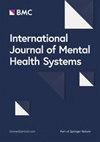Impact of informal employment on individuals’ psychological well-being: microevidence from China
IF 3.8
2区 医学
Q2 PSYCHIATRY
引用次数: 0
Abstract
The number of workers engaged in informal employment in China has reached 200 million individuals, constituting a substantial contribution to the pursuit of high-quality development and the attainment of stable employment objectives. Nevertheless, the psychological well-being of informal workers cannot be overlooked. Therefore, this study aims to investigate the impact of informal employment on individuals’ psychological well-being. Drawing on data from the 2020 China Family Panel Studies (CFPS) survey, this work employs ordinary least squares (OLS) models and instrumental variable analysis to empirically examine the impact of informal employment on the psychological well-being. Furthermore, different tests were utilised to analyse the mediating pathway through which informal employment affects the psychological well-being. Informal employment exhibits a significant negative impact on the psychological well-being, particularly among samples characterised by low educational levels, limited financial resources, and non-agricultural household registration. The exploration of the underlying mechanisms indicates that informal employment negatively affects the psychological well-being of workers through pathways that include reduced access to health entitlements, increased working hours, and decreased job satisfaction, particularly with the work environment. A recommendation is proposed; namely, to further establish a social security system that caters to the needs of the informal employment population and supports and regulates the development of flexible employment forms, with the aim of protecting and enhancing the psychological well-being of the informal employment population.非正规就业对个人心理健康的影响:来自中国的微观证据
中国非正规就业人数已达 2 亿人,为实现高质量发展和稳定就业目标做出了重要贡献。然而,非正规就业者的心理健康问题不容忽视。因此,本研究旨在探讨非正规就业对个体心理健康的影响。本研究利用 2020 年中国家庭面板调查(CFPS)的数据,采用普通最小二乘法(OLS)模型和工具变量分析方法,实证检验非正规就业对心理健康的影响。此外,还采用了不同的检验方法来分析非正规就业影响心理健康的中介途径。非正规就业对心理幸福感有显著的负面影响,尤其是在教育水平低、经济资源有限和非农业户籍的样本中。对其潜在机制的探讨表明,非正规就业对工人的心理健康产生负面影响的途径包括:获得医疗福利的机会减少、工作时间增加、工作满意度降低,尤其是对工作环境的满意度降低。为此提出了一项建议,即进一步建立满足非正规就业人口需求的社会保障体系,支持和规范灵活就业形式的发展,以保护和提高非正规就业人口的心理健康水平。
本文章由计算机程序翻译,如有差异,请以英文原文为准。
求助全文
约1分钟内获得全文
求助全文
来源期刊

International Journal of Mental Health Systems
PSYCHIATRY-
CiteScore
6.90
自引率
2.80%
发文量
52
审稿时长
13 weeks
 求助内容:
求助内容: 应助结果提醒方式:
应助结果提醒方式:


